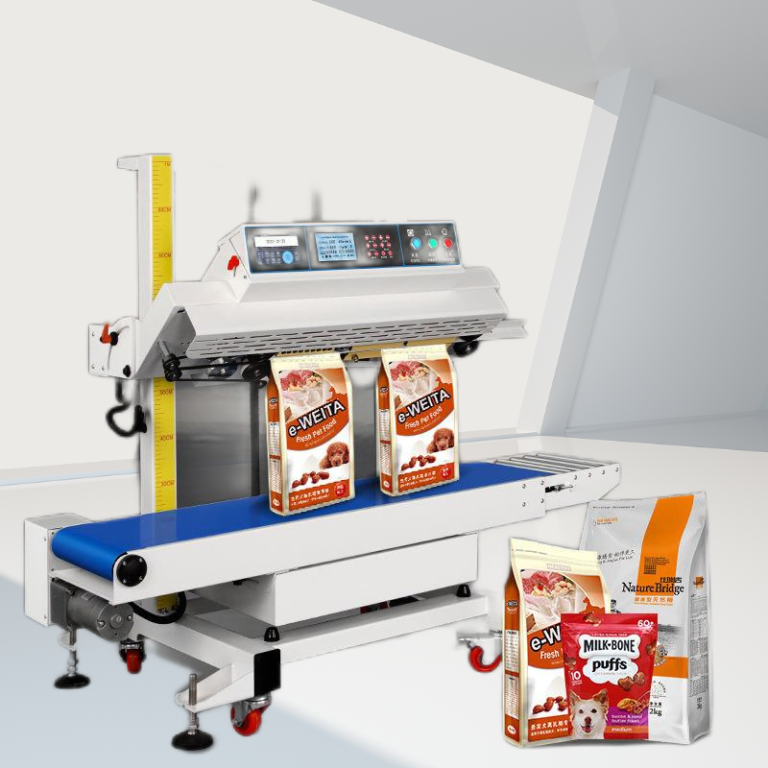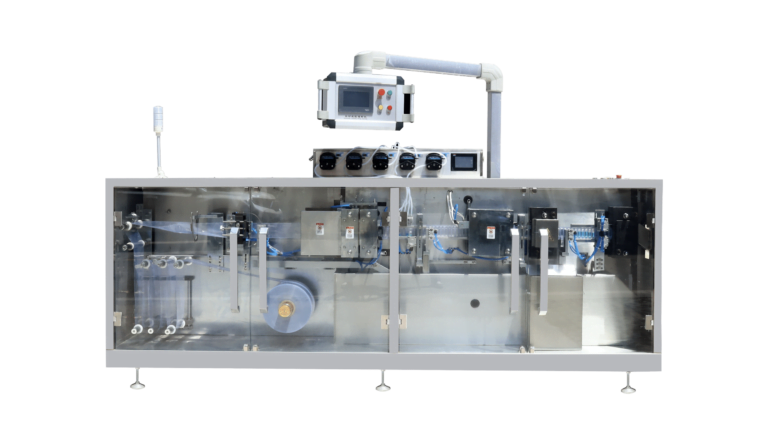Have you ever wondered how your favorite snack products are properly packed to keep them fresh and crispy? Are you a business owner trying to streamline your packaging process? What precisely is an automatic sealing machine, and how does it aid your manufacturing process?
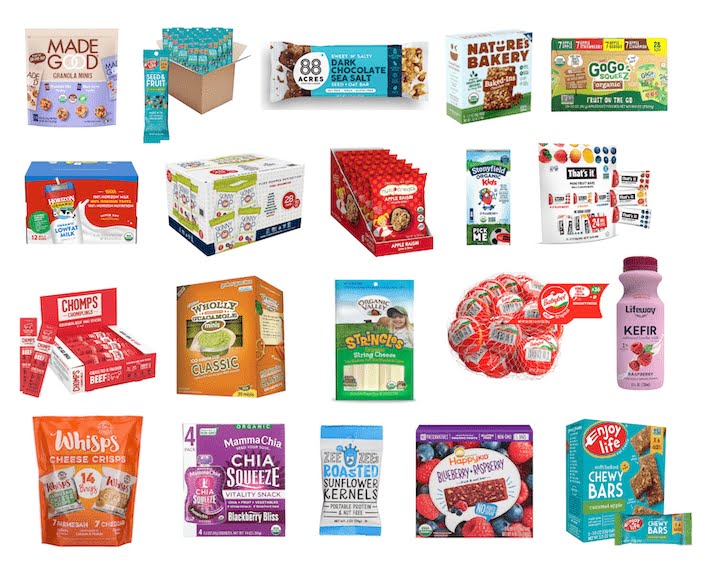
Different from semi automatic sealing machine, fully automatic sealing machine is a piece of machinery that automates the process of sealing bags, pouches, cans and other packaging materials. It is intended to provide a quick, effective, and consistent way of sealing products, keeping them fresh and protected during transportation and storage. In this blog post, we’ll go deeper into the realm of automatic sealing machines, looking at its functionality, benefits, and uses.
How Do Automatic Sealing Machines Work?
The primary function of an automatic filling and sealing machine is to form airtight seals on a variety of packaging materials. The method typically includes the following steps:
Feeding: Packaging material is fed into the machine, either manually or automatically.
Sealing: The machine employs heat, pressure, or a combination of the two to seal the edges of the packaging material, resulting in an airtight closing.
Cutting (optional): Some machines may have a cutting feature that removes superfluous packaging material, resulting in a clean and professional finish.
Automatic sealing machines use a variety of sealing processes, including heat, ultrasonic, and induction. The choice of sealing method is determined by the packaging material and the product’s specific requirements.
Types of Automatic Sealing Machines
There are various types of automatic sealing machines, each of which is built for a certain packaging material and sealing procedure. Some typical categories are:
Tray Sealing Machines: An inline automatic tray sealing machine designed for medium to large-scale production. It features a vacuum and gas function for modified atmosphere packaging (MAP), enhancing the shelf life of food products. It operates at approximately 5 cycles per minute and can accommodate various tray sizes
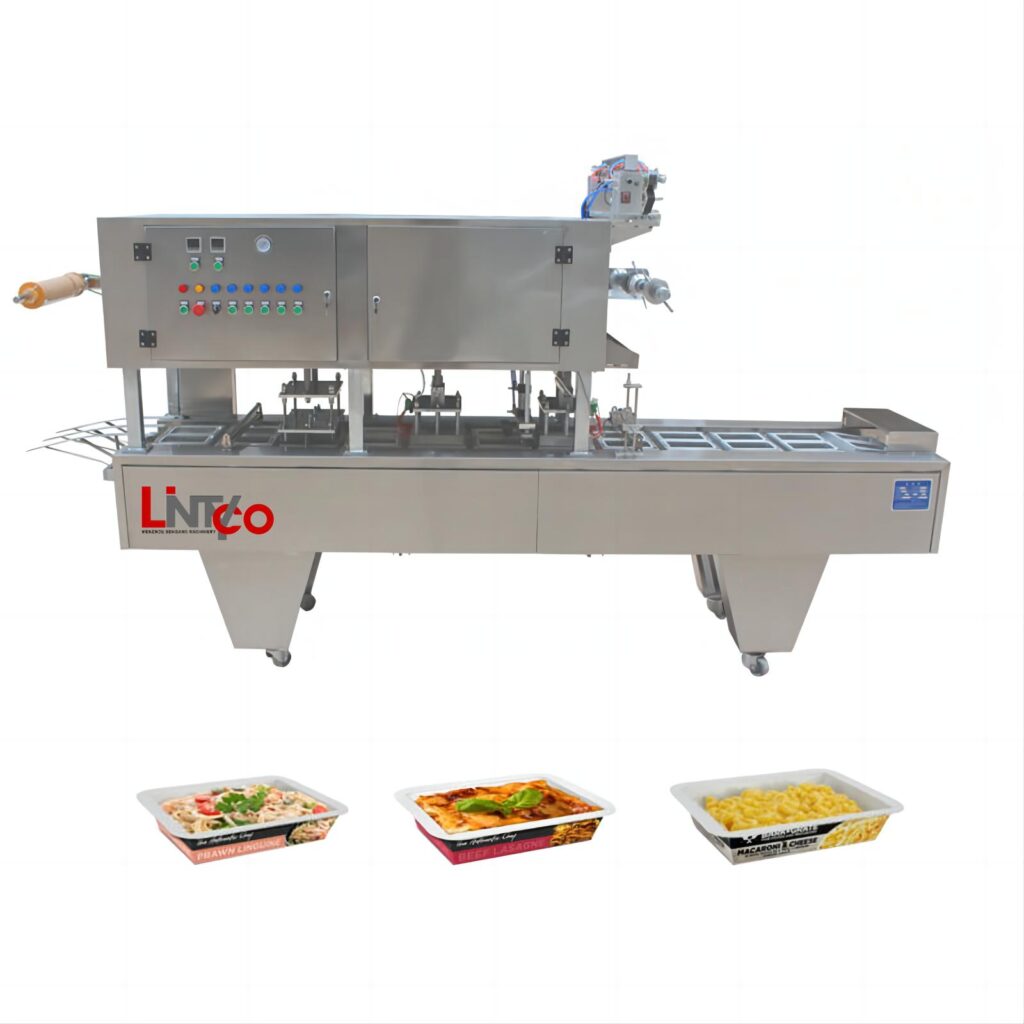
Continuous Band Sealers: These machines employ a conveyor to transfer packing material past a heated sealing device, resulting in a continuous seal along the length of the package.
Impulse Sealers: These sealers use a quick, regulated pulse of electrical energy to generate heat for sealing. This kind is ideal for sealing heat-sensitive materials since it reduces the chance of harm.
Rotary Sealers: These machines employ a rotating wheel to impart heat and pressure to the packaging material, resulting in a strong and lasting seal. Rotary sealers are ideal for high-speed production lines.
Canning Sealing Machines: Designed for sealing canned products, these machines ensure that food remains uncontaminated and extends shelf life
Vacuum sealers remove air from packages before sealing them, resulting in an airtight seal that maintains product freshness and extends shelf life.
What are the benefits of using an automatic sealing machine?
Automatic sealing machines provide a number of advantages for firms in a variety of industries:
Increased Efficiency: By automating the sealing process, these machines can greatly accelerate production lines, allowing businesses to package more products in less time.
Consistent Quality: Automatic sealing devices provide consistent seal quality, lowering the danger of leaks and product spoiling.
Reduced Labor Costs: With less manual involvement required, firms can save money on labor and redirect resources to other parts of their operations.
Customization: Many automatic sealing machines may be designed to handle a variety of packaging materials and sizes, providing flexibility to firms with a diversified product line.
Improved Safety: Automated devices reduce the danger of accidents and injuries caused by manual sealing processes.
Which Industries Can Benefit from Automatic Sealing Machines?
Automatic sealing machines are useful in a variety of sectors, including:
Food & Beverage: Automatic sealing machines are used in snack food manufacturers, such as those that make chips, cookies, and candies, to keep products fresh and improve shelf life.
Pharmaceuticals: The pharmaceutical business demands precise and dependable sealing solutions to safeguard drugs from contamination and tampering.
Cosmetics: Automatic sealing machines assist keep cosmetic items, such as creams and lotions, sealed and sanitary during transportation and storage.

Agriculture: Automatic sealing machines can be used to package seeds, fertilizers, and other agricultural items, assuring safe storage and delivery.
Electronics: These devices can be used to seal electronic components, shielding them from moisture, dust, and other contaminants.
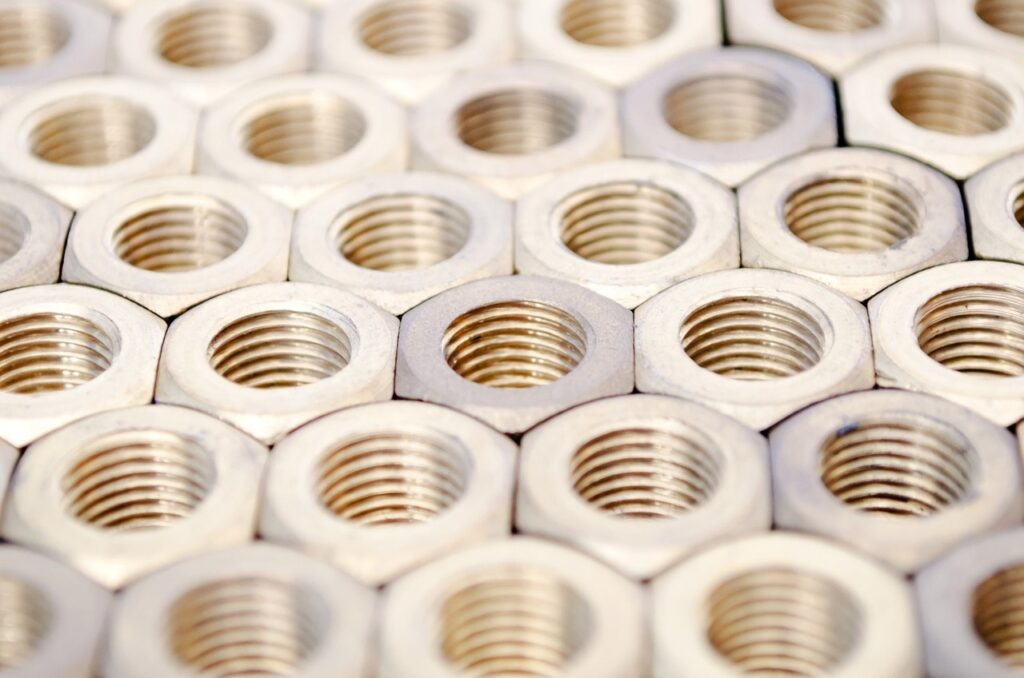
Factors to Consider When Selecting an Automatic Sealing Machine
Choosing the ideal automatic sealing equipment for your business necessitates careful consideration of various factors:
Product Type: Think about the specific packaging needs of your products, such as the material, size, and shape of the container.
Sealing Method: Determine the best sealing method for your package material and product requirements (heat sealing, ultrasonic sealing, induction sealing, etc.).
Production Capacity: Evaluate your existing and future production capacity requirements to guarantee the machine can handle the output.
Budget: Create a budget for your investment in an automatic sealing machine, taking into account the potential return on investment from higher efficiency and lower labor expenses.
Maintenance and Support: Look for a supplier who provides extensive maintenance and support services to ensure the longevity and peak performance of your machine.
The Value of Quality and Dependability in Automatic Sealing Machines
When investing in an automatic sealing machine, it is critical to prioritize quality and dependability. A high-quality equipment will not only provide constant performance, but it will also last longer, requiring less regular maintenance or replacement. When evaluating the quality of an automatic sealing machine, consider the following factors:
Materials and Components: High-quality machines are built with long-lasting materials and components, allowing them to resist the rigors of regular use.
Manufacturer Reputation: Choose a machine from a respected manufacturer with a track record of manufacturing durable and efficient sealing equipment.
Warranty & Support: A solid warranty and support package can provide you piece of mind, knowing that the manufacturer stands behind their product and is dedicated to your success.
Environmental Impact of Automatic Sealing Machines
As organizations grow more environmentally conscious, it is critical to evaluate the ecological impact of their packaging procedures. Automatic sealing machines can help create a more sustainable operation by:
Reducing Material Waste: Precise and consistent sealing can help reduce the amount of packaging material waste produced during production.
Energy Efficiency: Many new automatic sealing machines incorporate energy-efficient components and functions, lowering overall energy consumption.
Recyclable Packaging Materials: Businesses can contribute to a circular economy and lower their environmental imprint by using machines that accept recyclable packaging materials.
Frequently Asked Questions About Automatic Sealing Machines
1. How do automatic sealing machines work?
Automatic sealing machines operate using heat, pressure, or a combination of both to seal packages. The process typically involves placing the item in the machine, which then automatically adjusts the sealing parameters based on the product type. Sensors ensure that the correct temperature and pressure are applied for optimal sealing.
2.What industries benefit from automatic sealing machines?
Automatic sealing machines are widely used across various industries, including:
3. Are automatic sealing machines easy to operate?
Yes, most automatic sealing machines come with user-friendly controls and interfaces, allowing operators to quickly learn how to use them. Many models also feature programmable settings for different sealing tasks.
Conclusion
An automatic sealing machine is a vital piece of equipment for any company trying to improve packing efficiency and product quality. Companies that automate the sealing process can enhance production rates, lower labor costs, and ensure consistent quality throughout their product lines. When choosing the best automatic sealing machine for your individual requirements, you must take into account the product type, sealing method, production capacity, budget, and support services. You may optimize your packing process and establish a successful and sustainable business operation by investing in the necessary machinery and prioritizing quality and dependability.


